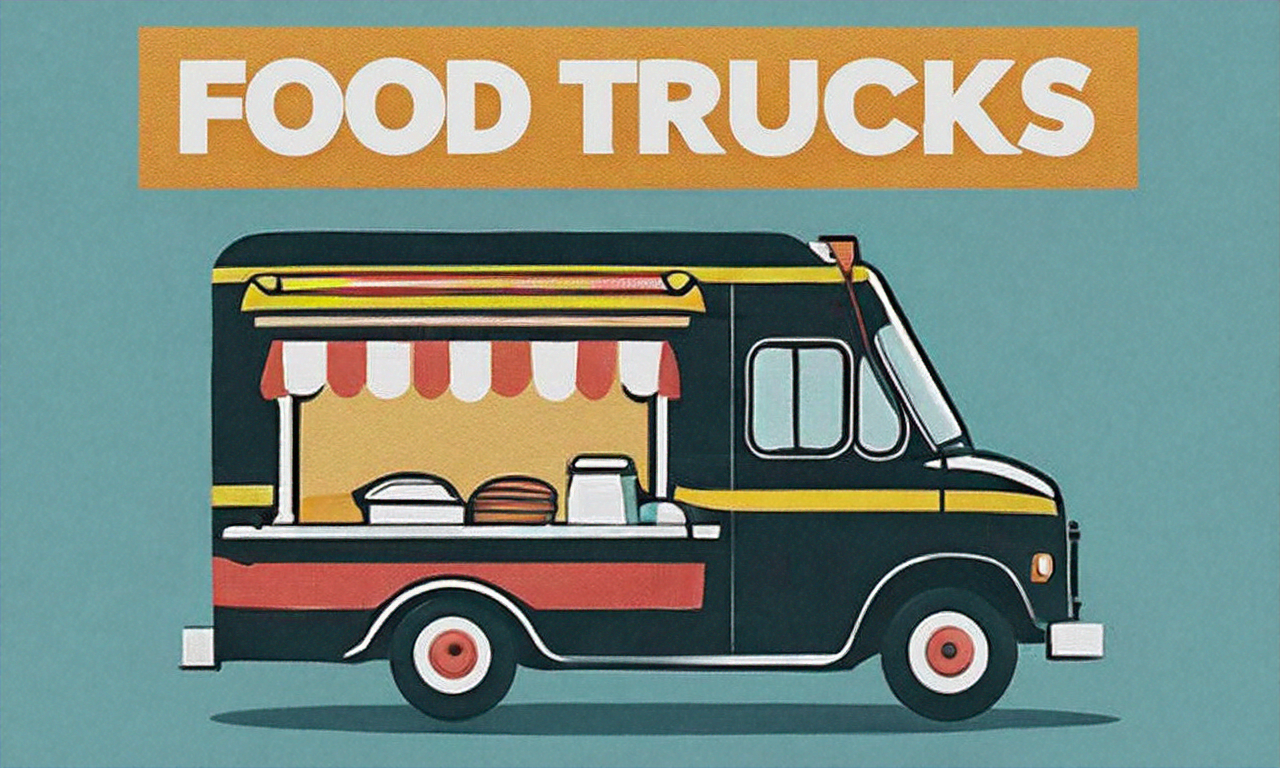Food Trucks: A Delicious Revolution on Wheels
Food trucks bring gourmet experiences to the streets, offering everything from tacos to vegan fare. They’re popular for events, quick lunches, and even catering. Learn how to locate the best trucks near you or explore what it takes to launch one of your own.

What exactly are food trucks and how do they operate?
Food trucks are essentially restaurants on wheels, equipped with cooking facilities and serving windows. They operate by preparing and selling food directly to customers from the vehicle. Unlike traditional brick-and-mortar establishments, food trucks have the flexibility to move to different locations, following customer demand and participating in various events. This mobility allows them to reach a wider audience and adapt quickly to market trends.
These mobile eateries typically specialize in a particular cuisine or signature dish, ranging from classic street foods like burgers and hot dogs to more elaborate offerings such as gourmet grilled cheese sandwiches or fusion tacos. The compact nature of food trucks encourages creativity in menu design and efficient food preparation, often resulting in unique and memorable dining experiences.
How much does a food truck cost to start and operate?
Starting a food truck business requires a significant initial investment, with costs varying depending on factors such as the size of the truck, equipment quality, and local regulations. The price of a new, fully-equipped food truck can range from $50,000 to $200,000, while used trucks may be available for $20,000 to $80,000.
In addition to the truck itself, entrepreneurs must consider ongoing operational costs such as:
-
Licenses and permits
-
Food and supplies
-
Fuel and maintenance
-
Insurance
-
Marketing and branding
-
Staff wages (if applicable)
| Expense Category | Estimated Cost Range |
|---|---|
| Food Truck (New) | $50,000 - $200,000 |
| Food Truck (Used) | $20,000 - $80,000 |
| Licenses and Permits | $1,000 - $5,000 per year |
| Food and Supplies | $1,000 - $2,000 per week |
| Fuel and Maintenance | $500 - $1,000 per month |
| Insurance | $2,000 - $4,000 per year |
| Marketing | $500 - $2,000 per month |
Prices, rates, or cost estimates mentioned in this article are based on the latest available information but may change over time. Independent research is advised before making financial decisions.
Where can I find food trucks for sale?
For those interested in entering the food truck business, there are several avenues to explore when looking for food trucks for sale:
-
Online marketplaces: Websites like UsedVending.com, Roaming Hunger, and FoodTruckEmpire.com specialize in listing food trucks and related equipment for sale.
-
Local classifieds: Check local newspapers, online classifieds, and community bulletin boards for food trucks being sold in your area.
-
Food truck manufacturers: Companies like Custom Concessions and Prestige Food Trucks offer new, custom-built food trucks tailored to your specific needs.
-
Industry events: Attend food truck festivals or restaurant industry trade shows where vendors often showcase trucks and equipment for sale.
-
Social media platforms: Follow food truck groups and pages on platforms like Facebook and Instagram, where owners sometimes list their trucks for sale.
When purchasing a food truck, it’s crucial to thoroughly inspect the vehicle, ensure all necessary equipment is included and in good working order, and verify that the truck meets local health and safety regulations.
What are the benefits of operating a food truck business?
Operating a food truck business offers several advantages over traditional restaurants:
-
Lower startup costs: Compared to opening a brick-and-mortar restaurant, starting a food truck generally requires less initial investment.
-
Flexibility: Food trucks can easily change locations to follow customer demand or participate in various events.
-
Lower overhead: With reduced rent and utility costs, food trucks often have lower ongoing expenses than traditional restaurants.
-
Direct customer interaction: The close-quarters nature of food truck service allows for more personal connections with customers.
-
Testing ground for concepts: Food trucks provide an excellent platform to test new menu items or culinary concepts before committing to a full-scale restaurant.
-
Marketing opportunities: The mobile nature of food trucks allows for unique branding and marketing strategies, such as participating in festivals or corporate events.
How can I find the best food trucks near me?
Discovering great food trucks in your area can be an exciting culinary adventure. Here are some tips to help you locate the best mobile eateries:
-
Use food truck finder apps: Applications like Street Food Finder, Roaming Hunger, and Food Truck Fiesta can help you locate trucks in real-time.
-
Follow social media: Many food trucks use platforms like Twitter, Instagram, and Facebook to announce their locations and daily specials.
-
Attend local events: Food trucks often gather at festivals, farmers markets, and other community events.
-
Check out food truck parks: Some cities have designated areas where multiple food trucks congregate regularly.
-
Ask for recommendations: Local foodies, coworkers, or friends can often point you towards their favorite food trucks.
-
Explore business districts: Many food trucks set up near office buildings during lunch hours to cater to the working crowd.
Food trucks have transformed the culinary landscape, offering diverse and innovative dining experiences on wheels. Whether you’re a food enthusiast eager to explore local mobile eateries or an entrepreneur considering entering the food truck business, this dynamic industry continues to evolve and excite. With lower barriers to entry than traditional restaurants and the flexibility to adapt to changing markets, food trucks represent a tasty slice of modern culinary culture that shows no signs of slowing down.




